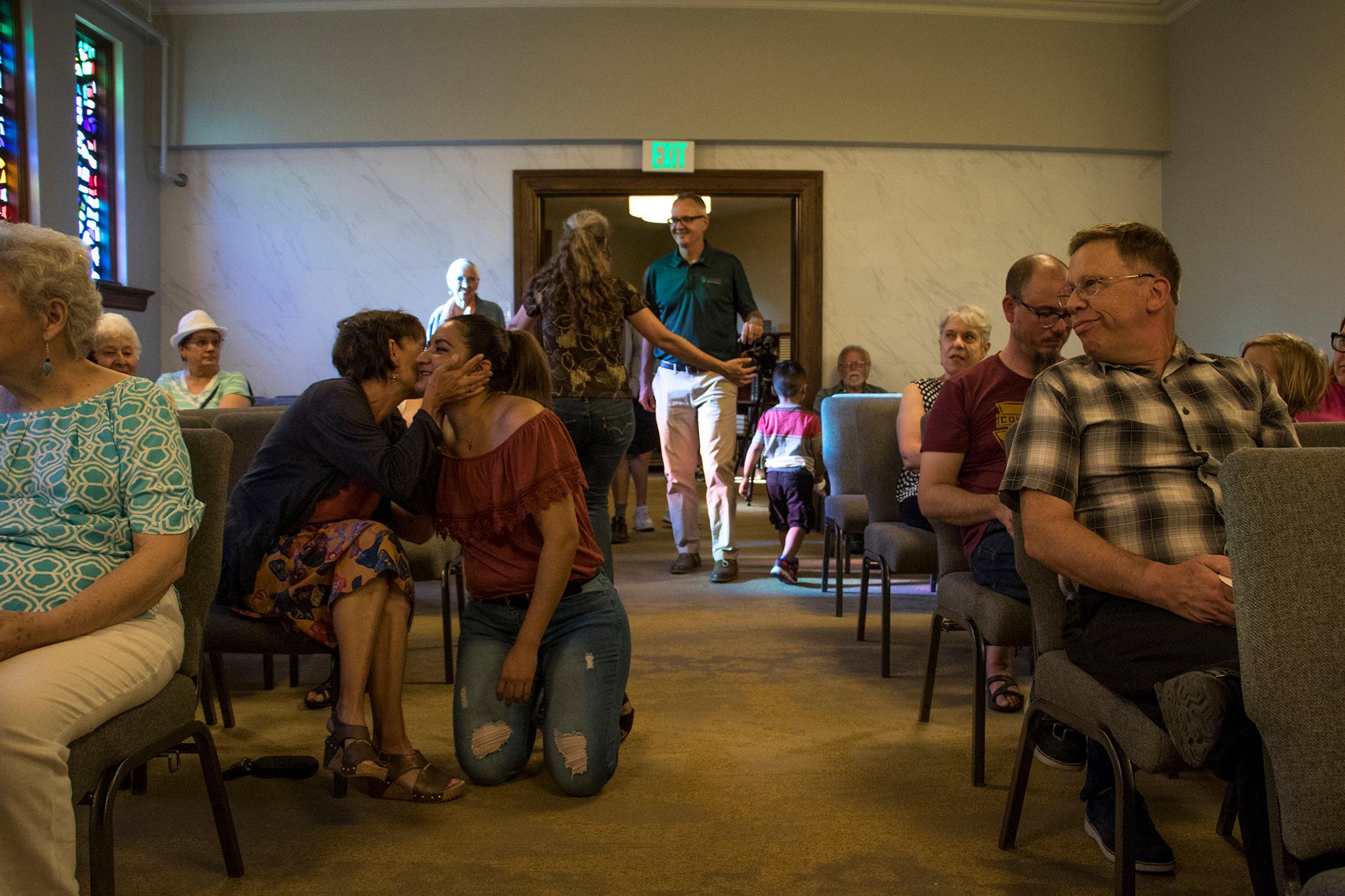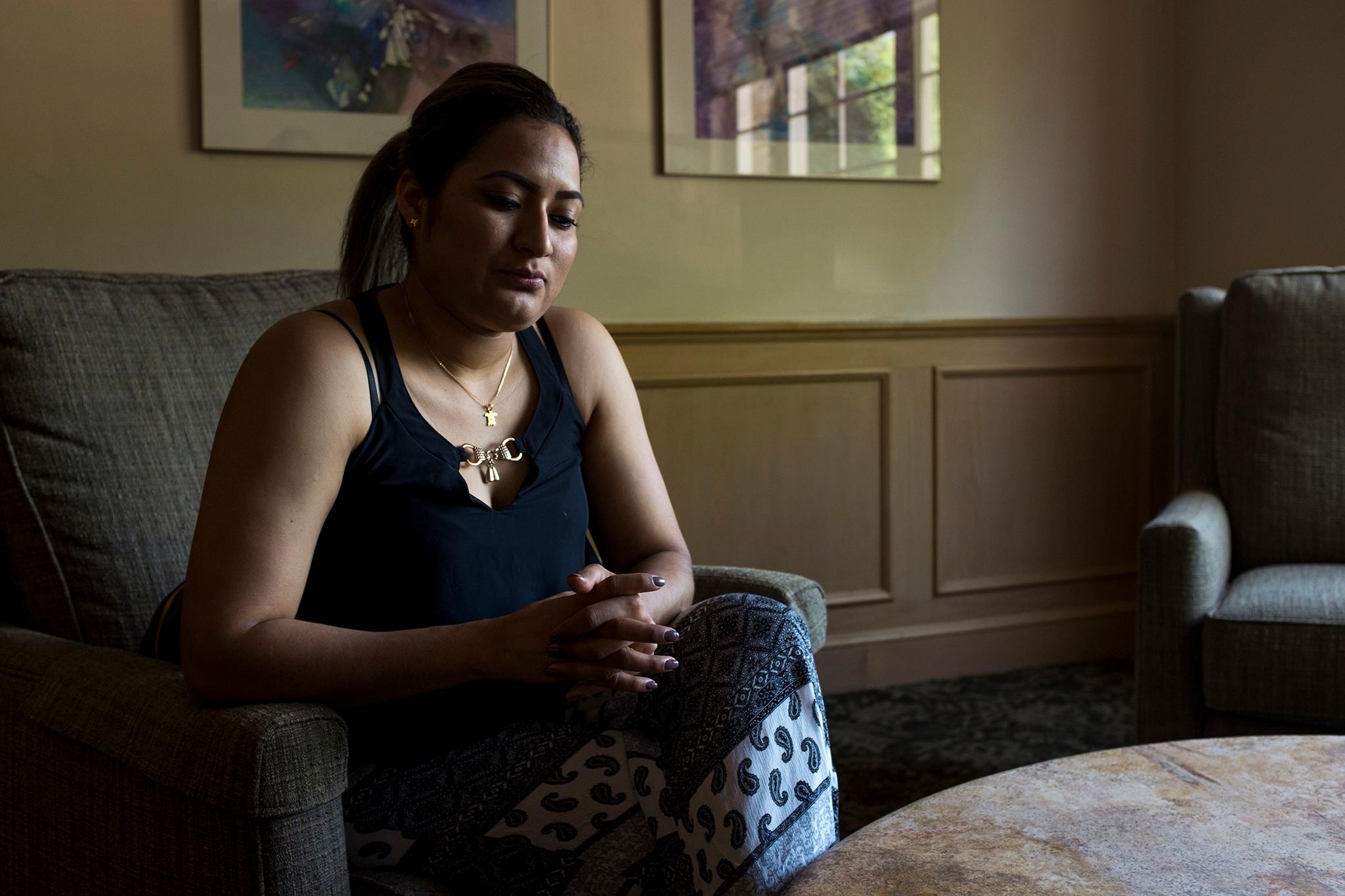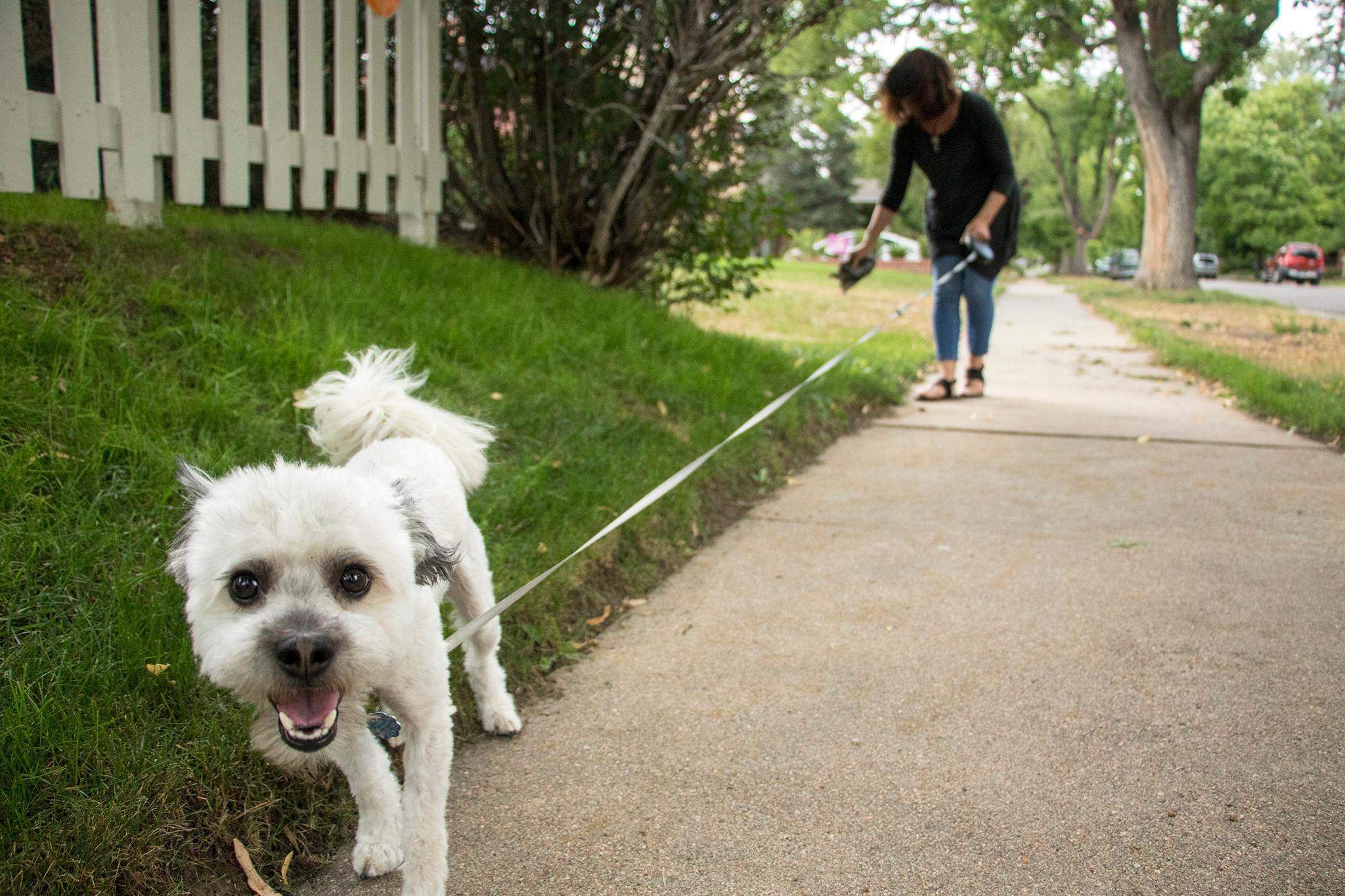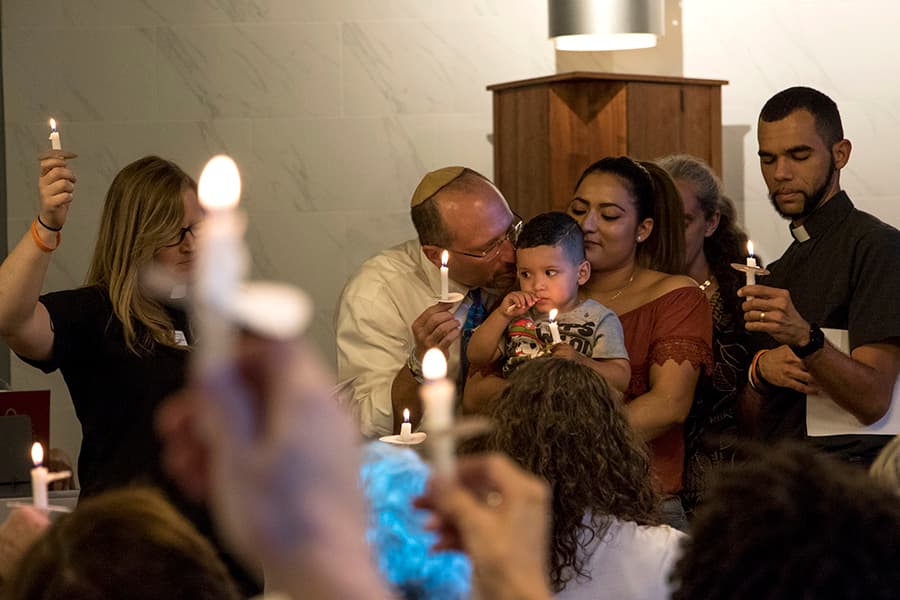In the book of Exodus, said Rabbi Adam Morris, the Jews were led through the wilderness from Egypt, a "narrow, small-minded place," by a pillar of fire. It was the light that pointed to the promised land. While their eventual deliverance would take the Jews out of the desert, he said, it was in that difficult place that they actually saw the swirling column of light.
"This pillar," he said during a special service Thursday, "it's God."
These days, for Morris' congregation at Temple Micah and the members of Park Hill United Methodist Church (with whom they share a building along Montview Boulevard), that time in the wilderness is a most relatable moment.
On Thursday evening, the congregations marked one year since they welcomed Araceli Velasquez into their shared space to live in sanctuary and avoid deportation. The Salvadoran has been fighting that removal order for at least seven years, and she continues to do so as she's lived in the basement beneath the church and synagogue.
The anniversary is not exactly a celebration, but not exactly a mourning. Morris said it's recognition that Velasquez, her family and the communities here are still in their own wilderness, trying to escape their own narrow place of suffering in search of freedom and safety. And in their wilderness, he said, they too have seen God.
But instead of a pillar of fire, Morris said he saw the divine in how the two communities stepped up to give Velasquez aid.
There are more than 100 trained volunteers who visit Velasquez, her husband and their three young sons on a regular basis. Each day, five or six people fill various shifts: they take her eldest to school, walk the dog or watch the church door. A volunteer even sleeps there most of the time to give the family a sense of security when the hulking building is empty and dark at night.
"The volunteers are a critical piece of making sanctuary successful," said Jennifer Piper, the interfaith coordinator for the American Friends Service Committee and a longtime shepherd for people entering sanctuary in the metro area. The practical help that volunteers offer, she said "mitigate[s] some of the suffering and the sacrifice that sanctuary represents."

While living in sanctuary is preferable to deportation, it's not been easy to remain inside the church all this time.
When she spoke to Denverite in January, Velasquez said her eldest, Jorge Jr., had been asking tough questions: "Why don’t you come to school to share with me or visit like the other moms do?" "Why don’t you take me anywhere anymore?"
This week, translated through Piper, she said the volunteers who come to help "are living half of my life for me. When they walk the dog, or they take my oldest son to school, or they go to the library with my boys, they’re really doing the things that I can’t do right now."
She's happy that her kids are still in school and healthy, but watching them from a distance can be difficult. Isolation, in general, takes a toll.
“It becomes hard not to get sad," she said.

To make matters more difficult, her husband, Jorge, also now has his legal status in question. He'd been living legally in the U.S. under Temporary Protected Status (TPS), a short-term allowance for Salvadorans granted by the Bush administration after a massive earthquake. Last year, homeland security officials announced TPS for Salvadorans would be canceled along with people from a handful of other countries. It's been more than 20 years since he left El Salvador, and his time to remain here legally is quickly coming to an end.
Despite pressures from all sides, they say the fight is still worth it.
"Returning to our country is not an option," Velasquez said.

For the volunteers and clergy, too, supporting Velasquez has been a fairly heavy lift.
Ann Hart, who came by earlier in the week to watch the door and take out the family dog, said all the donated time and effort is "enormous."
But, she said: "It’s absolutely worth it. The alternative is a nightmare, and wrong."
It's that sense of moral obligation that has motivated so many more like Hart to pitch in, taking a few hours here or there when they have time. With 120 people on their roster, the community effort is truly one of shared labor.
"I don’t think anyone realized how involved this would be," when they started, she said, "and not only in a negative way. People have learned so much from this and Araceli."

Not all of Velasquez's volunteers are members of the two congregations. Some live nearby, like Hart, or are long-time immigration activists. Piper said there are maybe twice as many volunteers also working in Boulder to support Ingrid Encalada, who has lived in and out of sanctuaries in Denver, Fort Collins and now Boulder since December 2016.
"It’s one teeny, tiny thing that I can do," Hart said.
But Velasquez said even that small effort goes a long way.
"The community support has been so important, because these are moments that are very difficult," she said. Especially with what she said is a "rise of overt racism" in the last few years, seeing people coming together in the name of love gives her hope.
"I feel like these two faith communities are so important to me and I thank God every day that I’m in sanctuary with these communities," she said. "That moral support is so important. Often times, when there are services, people will come up to me and give me hugs and they’ll say, ‘We’re with you, we stand with you,’ and I feel that I’m not alone."
And beyond her own situation, Velasquez hopes that three other very public sanctuary efforts in Colorado are helping raise awareness across the state. Besides her and Encalada, Rosa Sabido has lived in sanctuary for over a year in Mancos and Sandra Lopez has lived in a church for almost a year in Carbondale. The women have rallied around "The People's Revolution," a wide-ranging platform that also demands work authorization for undocumented immigrants.

For other people facing deportation, Velasquez said, "They see our public cases and know that there are other people like them that are going through the same thing."
Rabbi Morris said he also hopes the two congregations' stances send a message to the rest of the country, although he recognizes it's hard to communicate much these days.
"It’s so overwhelming, the noise out there," he said. But he thinks Temple Micah's participation has left an imprint on the Jewish community beyond just in Colorado. The last time he checked, his was the only synagogue in the country offering sanctuary in an immigration matter, and he thinks other congregations across the country have taken notice.
The way he sees it, offering shelter to Velasquez and her family is perfectly "in concert" with his religious teachings, and he's pleased that they've taken on the task with such gusto.
"I’m proud, I’m grateful," Morris said of the community, "and I want it to end. Because I want her to go home."
Until then, they'll still have to brave the wilderness.

Velasquez’s lawyer is filing new documents with the Board of Immigration Appeals in the coming weeks, an attempt to re-open her case and secure her legal status. Until a judge gives her another chance, or there’s a drastic shift in federal policy, they’ll have to be satisfied that they've continued to spread the word.
"We’ve raised the consciousness of the community about the injustices that our laws are causing for me and many other families," she said.












